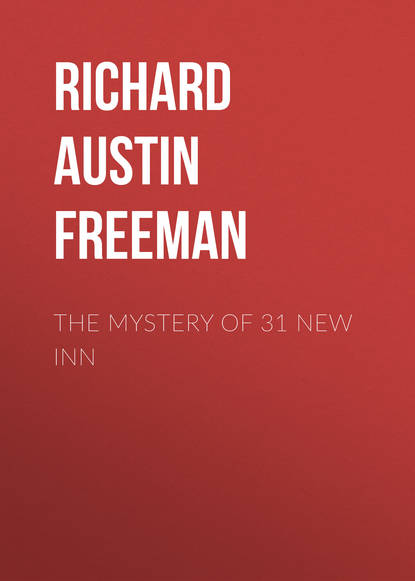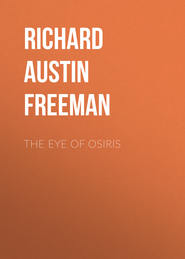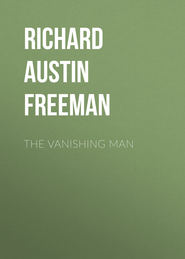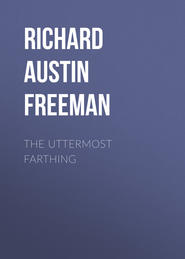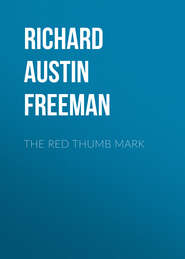По всем вопросам обращайтесь на: info@litportal.ru
(©) 2003-2024.
✖
The Mystery of 31 New Inn
Настройки чтения
Размер шрифта
Высота строк
Поля
Chapter XII
The Portrait
The state of mind which Thorndyke had advised me to cultivate was one that did not come easily. However much I endeavoured to shuffle the facts of the Blackmore case, there was one which inevitably turned up on the top of the pack. The circumstances surrounding the execution of Jeffrey Blackmore's will intruded into all my cogitations on the subject with hopeless persistency. That scene in the porter's lodge was to me what King Charles's head was to poor Mr. Dick. In the midst of my praiseworthy efforts to construct some intelligible scheme of the case, it would make its appearance and reduce my mind to instant chaos.
For the next few days, Thorndyke was very much occupied with one or two civil cases, which kept him in court during the whole of the sitting; and when he came home, he seemed indisposed to talk on professional topics. Meanwhile, Polton worked steadily at the photographs of the signatures, and, with a view to gaining experience, I assisted him and watched his methods.
In the present case, the signatures were enlarged from their original dimensions—rather less than an inch and a half in length—to a length of four and a half inches; which rendered all the little peculiarities of the handwriting surprisingly distinct and conspicuous. Each signature was eventually mounted on a slip of card bearing a number and the date of the cheque from which it was taken, so that it was possible to place any two signatures together for comparison. I looked over the whole series and very carefully compared those which showed any differences, but without discovering anything more than might have been expected in view of Mr. Britton's statement. There were some trifling variations, but they were all very much alike, and no one could doubt, on looking at them, that they were all written by the same hand.
As this, however, was apparently not in dispute, it furnished no new information. Thorndyke's object—for I felt certain that he had something definite in his mind—must be to test something apart from the genuineness of the signatures. But what could that something be? I dared not ask him, for questions of that kind were anathema, so there was nothing for it but to lie low and see what he would do with the photographs.
The whole series was finished on the fourth morning after my adventure at Sloane Square, and the pack of cards was duly delivered by Polton when he brought in the breakfast tray. Thorndyke took up the pack somewhat with the air of a whist player, and, as he ran through them, I noticed that the number had increased from twenty-three to twenty-four.
"The additional one," Thorndyke explained, "is the signature to the first will, which was in Marchmont's possession. I have added it to the collection as it carries us back to an earlier date. The signature of the second will presumably resembles those of the cheques drawn about the same date. But that is not material, or, if it should become so, we could claim to examine the second will."
He laid the cards out on the table in the order of their dates and slowly ran his eye down the series. I watched him closely and ventured presently to ask:
"Do you agree with Mr. Britton as to the general identity of character in the whole set of signatures?"
"Yes," he replied. "I should certainly have put them down as being all the signatures of one person. The variations are very slight. The later signatures are a little stiffer, a little more shaky and indistinct, and the B's and k's are both appreciably different from those in the earlier ones. But there is another fact which emerges when the whole series is seen together, and it is so striking and significant a fact, that I am astonished at its not having been remarked on by Mr. Britton."
"Indeed!" said I, stooping to examine the photographs with fresh interest; "what is that?"
"It is a very simple fact and very obvious, but yet, as I have said, very significant. Look carefully at number one, which is the signature of the first will, dated three years ago, and compare it with number three, dated the eighteenth of September last year."
"They look to me identical," said I, after a careful comparison.
"So they do to me," said Thorndyke. "Neither of them shows the change that occurred later. But if you look at number two, dated the sixteenth of September, you will see that it is in the later style. So is number four, dated the twenty-third of September; but numbers five and six, both at the beginning of October, are in the earlier style, like the signature of the will. Thereafter all the signatures are in the new style; but, if you compare number two, dated the sixteenth of September with number twenty-four, dated the fourteenth of March of this year—the day of Jeffrey's death—you see that they exhibit no difference. Both are in the 'later style,' but the last shows no greater change than the first. Don't you consider these facts very striking and significant?"
I reflected a few moments, trying to make out the deep significance to which Thorndyke was directing my attention—and not succeeding very triumphantly.
"You mean," I said, "that the occasional reversions to the earlier form convey some material suggestion?"
"Yes; but more than that. What we learn from an inspection of this series is this: that there was a change in the character of the signature; a very slight change, but quite recognizable. Now that change was not gradual or insidious nor was it progressive. It occurred at a certain definite time. At first there were one or two reversions to the earlier form, but after number six the new style continued to the end; and you notice that it continued without any increase in the change and without any variation. There are no intermediate forms. Some of the signatures are in the 'old style' and some in the 'new,' but there are none that are half and half. So that, to repeat: We have here two types of signature, very much alike, but distinguishable. They alternate, but do not merge into one another to produce intermediate forms. The change occurs abruptly, but shows no tendency to increase as time goes on; it is not a progressive change. What do you make of that, Jervis?"
"It is very remarkable," I said, poring over the cards to verify Thorndyke's statements. "I don't quite know what to make of it. If the circumstances admitted of the idea of forgery, one would suspect the genuineness of some of the signatures. But they don't—at any rate, in the case of the later will, to say nothing of Mr. Britton's opinion on the signatures."
"Still," said Thorndyke, "there must be some explanation of the change in the character of the signatures, and that explanation cannot be the failing eyesight of the writer; for that is a gradually progressive and continuous condition, whereas the change in the writing is abrupt and intermittent."
I considered Thorndyke's remark for a few moments; and then a light—though not a very brilliant one—seemed to break on me.
"I think I see what you are driving at," said I. "You mean that the change in the writing must be associated with some new condition affecting the writer, and that that condition existed intermittently?"
Thorndyke nodded approvingly, and I continued:
"The only intermittent condition that we know of is the effect of opium. So that we might consider the clearer signatures to have been made when Jeffrey was in his normal state, and the less distinct ones after a bout of opium-smoking."
"That is perfectly sound reasoning," said Thorndyke. "What further conclusion does it lead to?"
"It suggests that the opium habit had been only recently acquired, since the change was noticed only about the time he went to live at New Inn; and, since the change in the writing is at first intermittent and then continuous, we may infer that the opium-smoking was at first occasional and later became a a confirmed habit."
"Quite a reasonable conclusion and very clearly stated," said Thorndyke. "I don't say that I entirely agree with you, or that you have exhausted the information that these signatures offer. But you have started in the right direction."
"I may be on the right road," I said gloomily; "but I am stuck fast in one place and I see no chance of getting any farther."
"But you have a quantity of data," said Thorndyke. "You have all the facts that I had to start with, from which I constructed the hypothesis that I am now busily engaged in verifying. I have a few more data now, for 'as money makes money' so knowledge begets knowledge, and I put my original capital out to interest. Shall we tabulate the facts that are in our joint possession and see what they suggest?"
I grasped eagerly at the offer, though I had conned over my notes again and again.
Thorndyke produced a slip of paper from a drawer, and, uncapping his fountain-pen, proceeded to write down the leading facts, reading each aloud as soon as it was written.
"1. The second will was unnecessary since it contained no new matter, expressed no new intentions and met no new conditions, and the first will was quite clear and efficient.
"2. The evident intention of the testator was to leave the bulk of his property to Stephen Blackmore.
"3. The second will did not, under existing circumstances, give effect to this intention, whereas the first will did.
"4. The signature of the second will differs slightly from that of the first, and also from what had hitherto been the testator's ordinary signature.
"And now we come to a very curious group of dates, which I will advise you to consider with great attention.
"5. Mrs. Wilson made her will at the beginning of September last year, without acquainting Jeffrey Blackmore, who seems to have been unaware of the existence of this will.
"6. His own second will was dated the twelfth of November of last year.
"7. Mrs. Wilson died of cancer on the twelfth of March this present year.
"8. Jeffrey Blackmore was last seen alive on the fourteenth of March.
"9. His body was discovered on the fifteenth of March.
"10. The change in the character of his signature began about September last year and became permanent after the middle of October.
"You will find that collection of facts repay careful study, Jervis, especially when considered in relation to the further data:
"11. That we found in Blackmore's chambers a framed inscription of large size, hung upside down, together with what appeared to be the remains of a watch-glass and a box of stearine candles and some other objects."
He passed the paper to me and I pored over it intently, focusing my attention on the various items with all the power of my will. But, struggle as I would, no general conclusion could be made to emerge from the mass of apparently disconnected facts.
"Well?" Thorndyke said presently, after watching with grave interest my unavailing efforts; "what do you make of it?"
"Nothing!" I exclaimed desperately, slapping the paper down on the table. "Of course, I can see that there are some queer coincidences. But how do they bear on the case? I understand that you want to upset this will; which we know to have been signed without compulsion or even suggestion in the presence of two respectable men, who have sworn to the identity of the document. That is your object, I believe?"
"Certainly it is."
"Then I am hanged if I see how you are going to do it. Not, I should say, by offering a group of vague coincidences that would muddle any brain but your own."
Thorndyke chuckled softly but pursued the subject no farther.
The Portrait
The state of mind which Thorndyke had advised me to cultivate was one that did not come easily. However much I endeavoured to shuffle the facts of the Blackmore case, there was one which inevitably turned up on the top of the pack. The circumstances surrounding the execution of Jeffrey Blackmore's will intruded into all my cogitations on the subject with hopeless persistency. That scene in the porter's lodge was to me what King Charles's head was to poor Mr. Dick. In the midst of my praiseworthy efforts to construct some intelligible scheme of the case, it would make its appearance and reduce my mind to instant chaos.
For the next few days, Thorndyke was very much occupied with one or two civil cases, which kept him in court during the whole of the sitting; and when he came home, he seemed indisposed to talk on professional topics. Meanwhile, Polton worked steadily at the photographs of the signatures, and, with a view to gaining experience, I assisted him and watched his methods.
In the present case, the signatures were enlarged from their original dimensions—rather less than an inch and a half in length—to a length of four and a half inches; which rendered all the little peculiarities of the handwriting surprisingly distinct and conspicuous. Each signature was eventually mounted on a slip of card bearing a number and the date of the cheque from which it was taken, so that it was possible to place any two signatures together for comparison. I looked over the whole series and very carefully compared those which showed any differences, but without discovering anything more than might have been expected in view of Mr. Britton's statement. There were some trifling variations, but they were all very much alike, and no one could doubt, on looking at them, that they were all written by the same hand.
As this, however, was apparently not in dispute, it furnished no new information. Thorndyke's object—for I felt certain that he had something definite in his mind—must be to test something apart from the genuineness of the signatures. But what could that something be? I dared not ask him, for questions of that kind were anathema, so there was nothing for it but to lie low and see what he would do with the photographs.
The whole series was finished on the fourth morning after my adventure at Sloane Square, and the pack of cards was duly delivered by Polton when he brought in the breakfast tray. Thorndyke took up the pack somewhat with the air of a whist player, and, as he ran through them, I noticed that the number had increased from twenty-three to twenty-four.
"The additional one," Thorndyke explained, "is the signature to the first will, which was in Marchmont's possession. I have added it to the collection as it carries us back to an earlier date. The signature of the second will presumably resembles those of the cheques drawn about the same date. But that is not material, or, if it should become so, we could claim to examine the second will."
He laid the cards out on the table in the order of their dates and slowly ran his eye down the series. I watched him closely and ventured presently to ask:
"Do you agree with Mr. Britton as to the general identity of character in the whole set of signatures?"
"Yes," he replied. "I should certainly have put them down as being all the signatures of one person. The variations are very slight. The later signatures are a little stiffer, a little more shaky and indistinct, and the B's and k's are both appreciably different from those in the earlier ones. But there is another fact which emerges when the whole series is seen together, and it is so striking and significant a fact, that I am astonished at its not having been remarked on by Mr. Britton."
"Indeed!" said I, stooping to examine the photographs with fresh interest; "what is that?"
"It is a very simple fact and very obvious, but yet, as I have said, very significant. Look carefully at number one, which is the signature of the first will, dated three years ago, and compare it with number three, dated the eighteenth of September last year."
"They look to me identical," said I, after a careful comparison.
"So they do to me," said Thorndyke. "Neither of them shows the change that occurred later. But if you look at number two, dated the sixteenth of September, you will see that it is in the later style. So is number four, dated the twenty-third of September; but numbers five and six, both at the beginning of October, are in the earlier style, like the signature of the will. Thereafter all the signatures are in the new style; but, if you compare number two, dated the sixteenth of September with number twenty-four, dated the fourteenth of March of this year—the day of Jeffrey's death—you see that they exhibit no difference. Both are in the 'later style,' but the last shows no greater change than the first. Don't you consider these facts very striking and significant?"
I reflected a few moments, trying to make out the deep significance to which Thorndyke was directing my attention—and not succeeding very triumphantly.
"You mean," I said, "that the occasional reversions to the earlier form convey some material suggestion?"
"Yes; but more than that. What we learn from an inspection of this series is this: that there was a change in the character of the signature; a very slight change, but quite recognizable. Now that change was not gradual or insidious nor was it progressive. It occurred at a certain definite time. At first there were one or two reversions to the earlier form, but after number six the new style continued to the end; and you notice that it continued without any increase in the change and without any variation. There are no intermediate forms. Some of the signatures are in the 'old style' and some in the 'new,' but there are none that are half and half. So that, to repeat: We have here two types of signature, very much alike, but distinguishable. They alternate, but do not merge into one another to produce intermediate forms. The change occurs abruptly, but shows no tendency to increase as time goes on; it is not a progressive change. What do you make of that, Jervis?"
"It is very remarkable," I said, poring over the cards to verify Thorndyke's statements. "I don't quite know what to make of it. If the circumstances admitted of the idea of forgery, one would suspect the genuineness of some of the signatures. But they don't—at any rate, in the case of the later will, to say nothing of Mr. Britton's opinion on the signatures."
"Still," said Thorndyke, "there must be some explanation of the change in the character of the signatures, and that explanation cannot be the failing eyesight of the writer; for that is a gradually progressive and continuous condition, whereas the change in the writing is abrupt and intermittent."
I considered Thorndyke's remark for a few moments; and then a light—though not a very brilliant one—seemed to break on me.
"I think I see what you are driving at," said I. "You mean that the change in the writing must be associated with some new condition affecting the writer, and that that condition existed intermittently?"
Thorndyke nodded approvingly, and I continued:
"The only intermittent condition that we know of is the effect of opium. So that we might consider the clearer signatures to have been made when Jeffrey was in his normal state, and the less distinct ones after a bout of opium-smoking."
"That is perfectly sound reasoning," said Thorndyke. "What further conclusion does it lead to?"
"It suggests that the opium habit had been only recently acquired, since the change was noticed only about the time he went to live at New Inn; and, since the change in the writing is at first intermittent and then continuous, we may infer that the opium-smoking was at first occasional and later became a a confirmed habit."
"Quite a reasonable conclusion and very clearly stated," said Thorndyke. "I don't say that I entirely agree with you, or that you have exhausted the information that these signatures offer. But you have started in the right direction."
"I may be on the right road," I said gloomily; "but I am stuck fast in one place and I see no chance of getting any farther."
"But you have a quantity of data," said Thorndyke. "You have all the facts that I had to start with, from which I constructed the hypothesis that I am now busily engaged in verifying. I have a few more data now, for 'as money makes money' so knowledge begets knowledge, and I put my original capital out to interest. Shall we tabulate the facts that are in our joint possession and see what they suggest?"
I grasped eagerly at the offer, though I had conned over my notes again and again.
Thorndyke produced a slip of paper from a drawer, and, uncapping his fountain-pen, proceeded to write down the leading facts, reading each aloud as soon as it was written.
"1. The second will was unnecessary since it contained no new matter, expressed no new intentions and met no new conditions, and the first will was quite clear and efficient.
"2. The evident intention of the testator was to leave the bulk of his property to Stephen Blackmore.
"3. The second will did not, under existing circumstances, give effect to this intention, whereas the first will did.
"4. The signature of the second will differs slightly from that of the first, and also from what had hitherto been the testator's ordinary signature.
"And now we come to a very curious group of dates, which I will advise you to consider with great attention.
"5. Mrs. Wilson made her will at the beginning of September last year, without acquainting Jeffrey Blackmore, who seems to have been unaware of the existence of this will.
"6. His own second will was dated the twelfth of November of last year.
"7. Mrs. Wilson died of cancer on the twelfth of March this present year.
"8. Jeffrey Blackmore was last seen alive on the fourteenth of March.
"9. His body was discovered on the fifteenth of March.
"10. The change in the character of his signature began about September last year and became permanent after the middle of October.
"You will find that collection of facts repay careful study, Jervis, especially when considered in relation to the further data:
"11. That we found in Blackmore's chambers a framed inscription of large size, hung upside down, together with what appeared to be the remains of a watch-glass and a box of stearine candles and some other objects."
He passed the paper to me and I pored over it intently, focusing my attention on the various items with all the power of my will. But, struggle as I would, no general conclusion could be made to emerge from the mass of apparently disconnected facts.
"Well?" Thorndyke said presently, after watching with grave interest my unavailing efforts; "what do you make of it?"
"Nothing!" I exclaimed desperately, slapping the paper down on the table. "Of course, I can see that there are some queer coincidences. But how do they bear on the case? I understand that you want to upset this will; which we know to have been signed without compulsion or even suggestion in the presence of two respectable men, who have sworn to the identity of the document. That is your object, I believe?"
"Certainly it is."
"Then I am hanged if I see how you are going to do it. Not, I should say, by offering a group of vague coincidences that would muddle any brain but your own."
Thorndyke chuckled softly but pursued the subject no farther.





